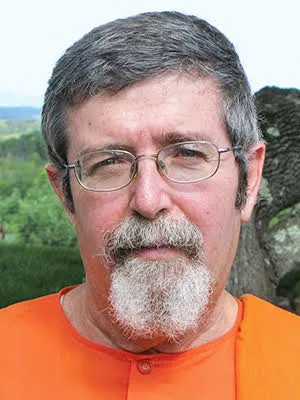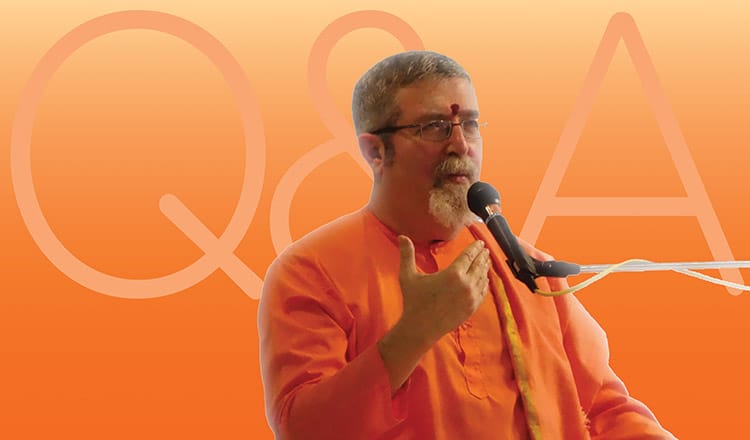Sivananda Bahamas Blog
Expand Your Horizons …
Our Blog
Why Did Gandhi and Jesus Die By Violence?
Question: In the Raja Yoga Sutras, it is said that by performing samyama –- the combined, simultaneous practice of dhāranā (concentration), dhyāna (meditation) and samādhi (union) –- on ahimsa, or non-injury, violence no longer exists in the presence of the practitioner. If that is so, why did Gandhi and Jesus die by violence?
Answer: Look at the life of Mahatma Gandhi and you will see that his life experience was permeated by violence. When he was in South Africa, he experienced racism and the effects of racism. When he was in India, he experienced a lot of violence. Because of this we know that Mahatma Gandhi had to have performed violent actions in the past, and death itself is prarabdha karma, or the karma from one’s past lives.
Now, think about Gandhiji’s agami [the karma of the present life through which one creates one’s karma for the future]. What was his free choice? What did he do in the present? In the present, he generated seeds of ahimsa. He actually practiced ahimsa, and what was the result of this practice? First of all, he transformed India. He caused the British to leave India through non-violent methods and helped India to regain its independence. He was able to stop the violence between Hindus and Muslims, just by his own personal example, if you know the story. He affected the whole world and continues to affect the whole world until the present day, all through the practice of ahimsa.
Indeed, he died a violent death, no question about it, and this is part of his prarabdha karma, which has to do with his past actions. Again, though, what was his agami? What was his fresh action at the moment of death? At the very moment of death, what came out of his mouth? Do you remember?
Audience: Ram.
Swami Swaroopananda: Yes, “Ram,” which means God. The last thought in his mind, at the very moment of his violent death, was of God. According to yogic teaching, that last thought determines our next reincarnation, and also determines something else. It determines whether, at the moment of death, we are going to attain Self-realization, or God-realization. If, truly, at the moment of death, you think about God, you will realize God at that moment. You can realize the Self at the moment of death. This was a good indication, regarding Mahatma Gandhi, that at the moment of death, there was no thought of revenge. He did not complain, “Oh, why did this happen to me?” What came out of his mouth at the moment of death was simply “Ram,” or God, and there is no better way to leave the body. Therefore, he is a very good example of the practice of ahimsa. Remember, though, that this is agami karma, the fresh karma that we generate in the present, while our life experiences are the results of our past karmas – karmas that we have done in the past.
One thing that I must add is that karmas that are very powerful, like the karmas activated by the practice of ahimsa, are going to give very fast results during the same life. This is quite unusual, but we see this in the life of Mahatma Gandhi. We see how his own life was transformed, how the life of his family was transformed, how the lives of the people who were closest to him were transformed. He transformed the life of India, and of the whole world, and he continues to affect the world even today. Through him you see the power of the fresh actions of ahimsa. He actually followed the path of ahimsa, and there has been a most wonderful result.
Now, when it comes to Jesus’ death by violence, it is a different story. I will go with the view of Swami Sivananda. Swami Sivananda believed that Jesus was an avatara, or a divine incarnation, and avataras do not incarnate due to karmas. Avataras are the divine manifestation of Iswara, or the Supreme Being, or they are the divine incarnation of the Supreme Being. In the first chapter of the Yoga Sutras, Samadhi Pada, we learn that Iswara was never affected by karma, ever, in eternity. Iswara was never affected by the kleshas, by the sources of suffering, in eternity. Iswara was never affected by samsara, by ignorance and its effects. Iswara is always omniscient, in eternity, but also, within the yogic lore, He manifests, incarnates, through His own yoga maya, or divine power. In the Bhagavad Gita, we learn about the law of the manifestation of the avatara, the law of the manifestation of the Supreme Being. When the Supreme Being descends and takes form, we call this an avatara – a descent. Lord Krishna explains in the Bhagavad Gita, “Whenever dharma decreases, and adharma increases, I incarnate in order to destroy adharma, and to re-establish dharma. I incarnate from age to age. In every age I come, and I appear in different forms.” In another place it says, “I manifest through my own yoga maya –- through my own yoga maya, I manifest.”
We can see that the incarnation of an avatara is not due to ignorance and to the past actions of the avatara that result in prarabdha karma, which takes the form of present life experiences and so on. In the case of an avatara, the incarnation has to do with the divine will, which is to re-establish dharma. The life of an avatara, according to this theory, is a lila, or a divine play; it is a divine manifestation that comes directly through the power of yoga maya, which is inherent in the divine itself. This is not like a samsaric being, who is reincarnating because of ignorance, because of karma, because of past actions, which means that everything that he experiences is the result of karma. An avatara is different. An avatara is a manifestation of the Supreme Being, which incarnates in order to re-establish dharma.
If you read the chapter on Jesus in Bliss Divine by Swami Sivananda, he says clearly that Jesus was an avatara. In the chapter on avatara in Bliss Divine, he is also very clear about Jesus. Therefore, if Jesus was an avatara, everything that happened in the life of Jesus was a lila, a divine play, and was governed by the will of the Supreme Being and by the law of the divine manifestation, which is the law of the descent of the avatara. Jesus came, according to this explanation, to re-establish dharma. This is how Swami Sivananda explains it, and nobody is in a better position to talk about it than Swami Sivananda, who is a jivanmukta. That means he is as omniscient as a human being can be, so he would know what he’s talking about when he talks about Jesus. Nor was he the only great Indian master who spoke about Jesus as an avatara. Take, for example, Yogananda Paramahansa, who also speaks about Jesus as an avatara, and there were others. If we accept the words of Swami Sivananda, the death of Lord Jesus on the cross is not the result of some past negative violent karma, but a part of his lila, a part of his divine play, of re-establishing the dharma, which is why avataras come.
It is not only Jesus. Lord Krishna died because a hunter, mistakenly thinking he was a deer, shot him with an arrow. Lord Krishna is regarded as a purna avatara, or the full incarnation of the divine, but he died a violent death. Lord Buddha, who is also considered to be an avatara, died due to dysentery, due to some type of abdominal problem.
When yogis look at the births, lives and even deaths of Lord Jesus, or Lord Krishna, or Lord Buddha, they look upon them as lilas, as divine plays, and the lilas are there in order to teach something, or to re-establish dharma, and so on.

Swami Swaroopananda is a senior disciple of Swami Vishnudevananda. A practicing yogi from a very young age, Swami Swaroopananda has dedicated his life to the practice and teaching of yoga. He taught in Yoga Teacher Training Courses around the world and is currently teaching advanced yoga philosophy courses and lectures internationally. He is Director of the Sivananda Ashram Yoga Retreat and acharya (spiritual director) for the Sivananda centers and ashrams in the Bahamas and the Middle East. He is a member of the Board of Directors of the International Sivananda Yoga Vedanta Centres.
Upcoming Courses
Swami Swaroopananda answers aspirants’ questions, clears troubled minds, and inspires listeners to advance on the spiritual path.
Swami Swaroopananda answers aspirants’ questions, clears troubled minds, and inspires listeners to advance on the spiritual path.
Celebrate a beautiful Easter morning on Paradise Island with traditional Easter singing, stories, and messages of hope.
Swami Swaroopananda answers aspirants’ questions, clears troubled minds, and inspires listeners to advance on the spiritual path.
Swami Swaroopananda answers aspirants’ questions, clears troubled minds, and inspires listeners to advance on the spiritual path.
Swami Swaroopananda answers aspirants’ questions, clears troubled minds, and inspires listeners to advance on the spiritual path.
Swami Swaroopananda answers aspirants’ questions, clears troubled minds, and inspires listeners to advance on the spiritual path.
Swami Swaroopananda answers aspirants’ questions, clears troubled minds, and inspires listeners to advance on the spiritual path.
Swami Swaroopananda answers aspirants’ questions, clears troubled minds, and inspires listeners to advance on the spiritual path.
Swami Swaroopananda answers aspirants’ questions, clears troubled minds, and inspires listeners to advance on the spiritual path.
Swami Swaroopananda answers aspirants’ questions, clears troubled minds, and inspires listeners to advance on the spiritual path.
During this special time of year we invite you to join us in celebrating wisdom, love, compassion, and the transcendence of artificial barriers.
Swami Swaroopananda answers aspirants’ questions, clears troubled minds, and inspires listeners to advance on the spiritual path.
Swami Swaroopananda answers aspirants’ questions, clears troubled minds, and inspires listeners to advance on the spiritual path.
Swami Swaroopananda answers aspirants’ questions, clears troubled minds, and inspires listeners to advance on the spiritual path.
Swami Swaroopananda answers aspirants’ questions, clears troubled minds, and inspires listeners to advance on the spiritual path.
Swami Swaroopananda answers aspirants’ questions, clears troubled minds, and inspires listeners to advance on the spiritual path.
Swami Swaroopananda answers aspirants’ questions, clears troubled minds, and inspires listeners to advance on the spiritual path.
Swami Swaroopananda answers aspirants’ questions, clears troubled minds, and inspires listeners to advance on the spiritual path.
Swami Swaroopananda answers aspirants’ questions, clears troubled minds, and inspires listeners to advance on the spiritual path.
Swami Swaroopananda answers aspirants’ questions, clears troubled minds, and inspires listeners to advance on the spiritual path.
Swami Swaroopananda answers aspirants’ questions, clears troubled minds, and inspires listeners to advance on the spiritual path.
Swami Swaroopananda answers aspirants’ questions, clears troubled minds, and inspires listeners to advance on the spiritual path.
Swami Swaroopananda answers aspirants’ questions, clears troubled minds, and inspires listeners to advance on the spiritual path.
Swami Swaroopananda answers aspirants’ questions, clears troubled minds, and inspires listeners to advance on the spiritual path.








